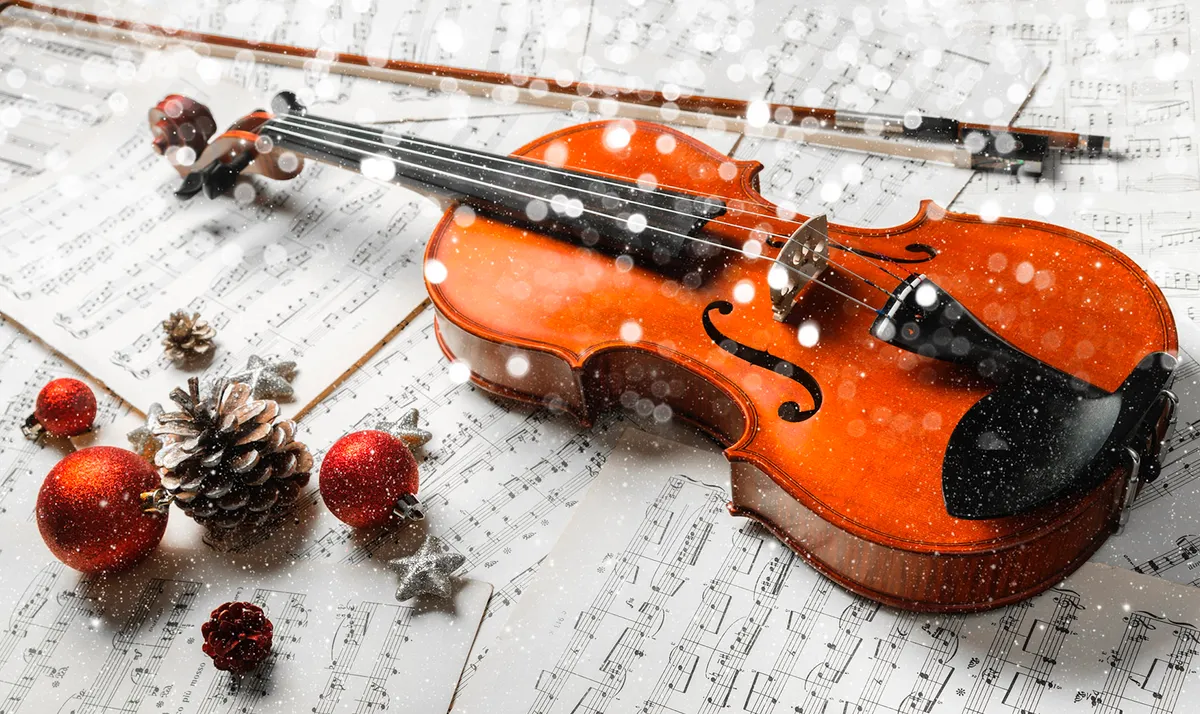The portrait of Heinrich Schütz by Christoph Spetner depicts a distinctly sober man; an easy visual fit for the composer of three austere Passion settings and the haunting Musikalische Exequien.
But The Christmas Story, first heard at the Dresden Court’s 1660 Christmas Day Vespers, paints another Schütz, a man turning his German piety and Italian learning to a score suffused with sparkle and irony, mystery and awe.
What is The Christmas Story about?
The narrative, declaimed by an Evangelist, unfolds the events of Christ’s birth up to the return after the flight into Egypt, and is punctuated by eight vocal ‘Intermedia’ – each is given its own instrumental colour, and brings the speech of the protagonists into vividly imagined relief. Opening and closing choruses act like the outer panels of an altarpiece framing a nativity scene whose youthful exuberance belies Schütz’s own 75 Christmases past.
Best recordings of The Christmas Story by Schütz
René Jacobs (conductor), Martin Hummel (Evangelist); Concerto Vocale (1990)
Harmonia Mundi HMX 2921310
When it comes to sifting the currently available recordings, the end result proves a close call. But René Jacobs’s warmly recorded, spacious yet urgent 1990 account winningly marries the precision and illustrative thrust of an Albrecht Dürer woodcut with the spicy, heart-gladdening cheer of a festive Glühwein.
Given the importance of the recitative, the choice of Evangelist is crucial, and Schütz asked for a ‘tenor with a good light voice’. Martin Hummel obliges, balancing decorum and engagement in a delivery one moment full of wonder, the next of outrage. And the supporting continuo is every bit as inventive as you’d expect from Jacobs.
Less expected, perhaps, is the gentleness of the opening which gives no hint of the lively tempos Jacobs has in store. ‘Ehre sei Gott’ seems to fill the skies with the whirring of angels’ wings, the high recorders and dulcian speed the shepherds on the way to Bethlehem with a joyous spring, echoed by the sprightly tread of the Magi, while the dark-hued, brass-rich tableau of High Priests gleams with the sombre glow of a Rembrandt. Jacobs’s chorus includes one Andreas Scholl, doubling as a shepherd and an angel in a cast including Ulrich Messthaler’s imperious Herod and Susanne Rydén’s radiant bringer of glad tidings.
Paul Hillier (conductor), Adam Riis (Evangelist); Ars Nova Copenhagen (2008)
Dacapo 8226058
Given Schütz’s Danish expeditions in the 1630s, it’s only appropriate that Ars Nova Copenhagen should have taken him to heart. And with its more modern, forwardly-focused recording and clean-cut Scandinavian ‘interior design’, Paul Hiller’s direction of The Christmas Story might well be many people’s first choice.
His Evangelist, Adam Riis, negotiates with consummate skill the fine line between church and stage in articulating the story, and he’s notably striking at the end where, with nobility and grandeur, Schütz imagines the Christ-child flourishing and growing. Hillier’s apposite tempos and sense of continuity between recitative and Intermedia lend a beguiling naturalness to a strongly characterised and always fresh reading.
Wolfgang Katschner (conductor), Christoph Prégardien (Evangelist); Capella Angelica, Lautten Compagney (2007)
Berlin Classics 0016232BC
Schütz was heavily involved in the emergence of the first German opera: Dafne, created for wedding celebrations staged in 1627, but now lost. Driven along at a cracking pace by Christoph Prégardien’s scrupulously considered Evangelist, Wolfgang Katschner’s account, with its elaborately worked-out continuo, suggests most nearly what a Schütz opera might have sounded like.
The immediacy of the performance is founded on an enlivening and illuminating interdependence between Capella Angelica’s voices and Lautten Compagney’s instruments. The colours glisten and glow, the word painting fairly leaps off the page, while the majestic Heavenly Hosts of Intermedium II are intoxicatingly light.
Jeremy Summerly (conductor), Paul Agnew (Evangelist); Oxford Camerata (1995)
Naxos 8.553514
With two recommendable budget versions available, even Scrooge himself needn’t forgo seasonal Schütz. Both are by specialist English ensembles, each with a supple and responsive Evangelist. Performing at a higher pitch, The King’s Consort ought to have an in-built advantage when it comes to innate brightness, but the pristine neatness sometimes borders on daintiness.
Oxford Camerata’s 1995 account, in fact, also has the edge in personality, whether in humorously playing up the dutiful tramp of the Wise Men or securing an almost Wagnerian opulence for the self-important High Priests. Although The King’s Consort’s tempos are generally brisker, the Oxford Camerata’s is the more dramatic reading, uniting finely calibrated storytelling with hearty cheer.
More Christmas music
